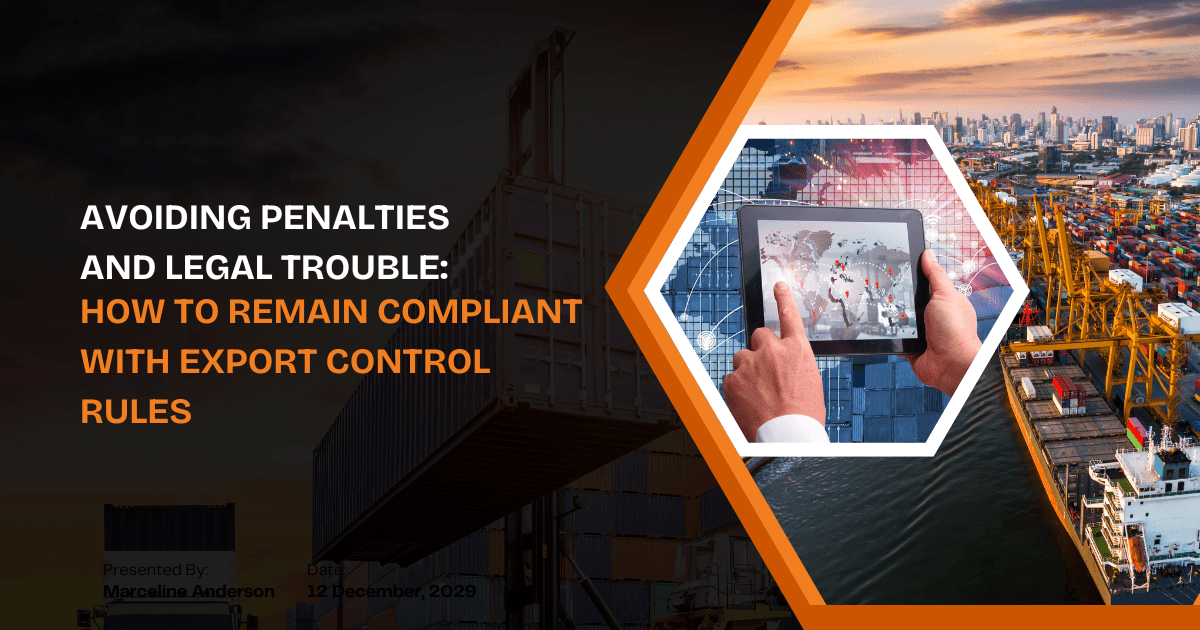
International trade presents enormous opportunities for companies big and small. The rewards, though, are accompanied by responsibilities—particularly export control regulations. Failure to comply results in significant penalties, canceled licenses, delayed shipments, and even criminal prosecution. To protect your business and your partners’ trust, it’s important to know how to remain compliant.
Why Export Control Compliance is Important
Export control regulations are meant to control the flow of goods, technology, and software across international borders. They are meant to safeguard national security, advance foreign policy, and keep sensitive items from falling into the wrong hands at restricted destinations or parties.
Disregarding them is not merely a monetary threat—it can wreak havoc on your company’s reputation and reputation worldwide.
Frequent Risks of Non-Compliance
- Financial fines – Companies could be fined thousands (or millions) of dollars.
- Loss of export privileges – Businesses can forfeit the privilege of exporting completely.
- Seizures and delays of shipments – Resulting in supply chain interruptions.
- Criminal prosecution – In the most severe situations, executives can be prosecuted.
Key Steps to Remain Compliant
1. Be familiar with the regulations that are relevant
Every nation has a set of export control regulations, like:
- U.S. Export Administration Regulations (EAR)
- International Traffic in Arms Regulations (ITAR)
- EU Dual-Use Regulation
- Local customs compliance and trade laws
Acquaint yourself with the regulations applicable to your business, products, and markets.
2. Categorize Your Products Properly
Decide if your merchandise, software, or technology belong to controlled categories (e.g., dual-use items, defense articles, or sensitive technologies). Misclassification is a major reason for failure in compliance.
3. Screen Customers and Partners
Always conduct denied party screening against government watchlists to know you’re not handling restricted entities or embargoed nations. Automated software can facilitate this.
4. Accurate Documentation
Have detailed records of all exports, licenses, and communications. Good documentation not only guarantees compliance but also helps shield you in the event of audits or investigations.
5. Train Your Team
Compliance is not a sole department’s duty. Train all supply chain, sales, and logistics staff to identify red flags and adhere to correct procedures.
6. Utilize Technology and Expert Assistance
Utilize compliance software for screening, classification, and documentation. Consider the assistance of IOR (Importer of Record) and EOR (Exporter of Record) service providers to manage complicated markets and mitigate risks.
Building a Culture of Compliance
Compliance must not be viewed as a constraint but as a business facilitator. Businesses that focus on compliance have smoother operations, more solid global relationships, and a reputation for dependability.
Final Thoughts
In the modern globalized world, there is no room for ignoring export control regulations. By taking an active approach to learning the regulations, properly classifying products, screening business associates, and documenting everything, businesses can stay clear of penalties and legal problems while going global with confidence.

